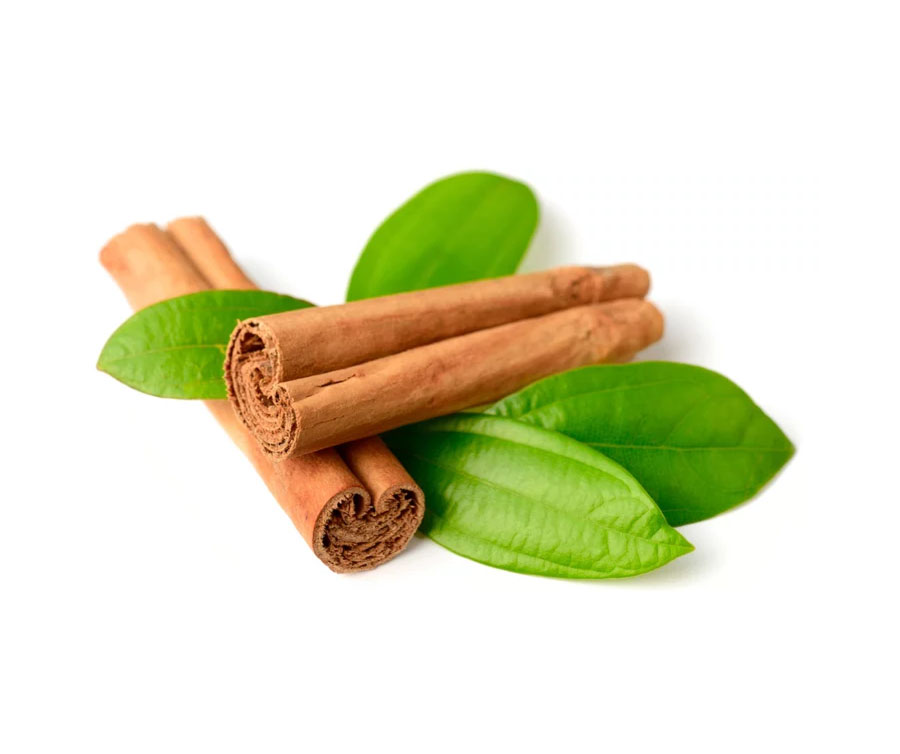.jpg)
Cinnamon
Cinnamon is an incredibly versatile ingredient. The product can be used to make any dish spicier or sweeter. Even though chefs use cinnamon every day, they probably aren’t aware of how amazing the flavor additive actually is. This article will overview five interesting facts you didn’t know about cinnamon. After reading, you’ll appreciate the ingredient even more than you did before. In fact, you’ll probably share the information will all your friends, too.
Cinnamon Sticks
.jpg)
Ceylon cinnamon sticks, also known as Ceylon cinnamon quills, can provide a delicate spice infusion to Autumnal or festive recipes.
Cinnamon Powder
.jpg)
Organic Cinnamon powder or cinnamomum zeylanicum is a very special spice with a rich, sweet taste that transports you to foreign places.

Different Types of Cinnamon
Not all cinnamon is the same. There are two distinctly different types of the flavoring agent that every chef should recognize, namely the two main variations of Cassia cinnamon and Ceylon cinnamon. Cassia cinnamon is what most people think of when they imagine the product. Cassia cinnamon is thicker and darker in color than its Ceylon counterpart. Most grocery chains sell Chinese Cassia cinnamon. However, Saigon cinnamon has a much higher oil concentration than its Chinese counterpart. Therefore, Saigon cinnamon brings forth a much stronger potency and flavor than the Chinese type of cinnamon.
Ceylon is the other kind of cinnamon on the market. Ceylon is much more suited for simple baked goods and dishes with a few other ingredients. Ceylon doesn’t pack as much of a punch as Saigon. It’s also important to note that Saigon cinnamon has a much higher amount of coumarin. If that’s not really your thing, then Ceylon is the best option for you. SloFoodGroup has tons of cinnamon powder for sale that’ll satisfy your every craving. Whether you like Cassia or Ceylon cinnamon varieties, we have everything you’re looking for.
Benefits:
Contains Iron, Magnesium, Phosphorous, Vitamin A, B & K.
Cinnamon is loaded with powerful antioxidants, such as polyphenols.
The distinctive smell and flavor of cinnamon derive from the essential oils contained in the bark, called cinnamaldehyde.
Cinnamaldehyde displays anti-viral, anti-bacterial, and anti-fungal properties.
Uses:
For breakfast, it’s a natural complement to cereal, granola, oatmeal, or yogurt, and it’s wonderfully sprinkled on wholegrain toast, or mixed into waffle or pancake batter.
It can be added to many baked dishes, such as baklava, churros, cinnamon rolls, pies, cookies, and sweet bread.
It is often added to many savory dishes as a spice mix.
Micronutrients of Cinnamon include:
Minerals: Calcium, Iron, Magnesium, Phosphorus, Potassium, Zinc, Copper, Manganese, Selenium
Vitamins: Vitamin C, Thiamin, Riboflavin, Niacin, Pantothenic Acid, Vitamin B-6, Folate, Choline, Betaine, Beta carotene, Alpha Carotene, Cryptoxanthin-Beta, Lycopene, Vitamin A (I.U.), Lutein & Zeaxanthin, Vitamin E, Gamma Tocopherol, Delta Tocopherol, Vitamin K
Amino Acids: Tryptophan, Threonine, Isoleucine, Leucine Lysine, Methionine, Cystine, Phenylalanine, Tyrosine, Valine, Arginine, Histidine, Alanine, Aspartic Acid, Glutamic Acid, Proline, Serine
Flavonoids: Proanthocyanidin, 4-6 Mers, 7-10 Mers, Monomers, Dimers, Trimers
Essential Oils: Cinnamaldehyde
Phenols and Terpenes: Eugenol, Trans-Cinnamic acid, Hydroxycinnamaldehyde, o- Methoxycinnamaldehyde, Cinnamyl alcohol and its acetate, Limonene, Alpha-terpineol, oligomeric procyanidins
Order Now
L G Manufacturing and Export, we specialize in sourcing, processing, and delivering the finest Ceylon cinnamon to customers worldwide. Our dedication to quality, sustainability, and customer satisfaction has established us as a reliable and preferred supplier in the global cinnamon market.
